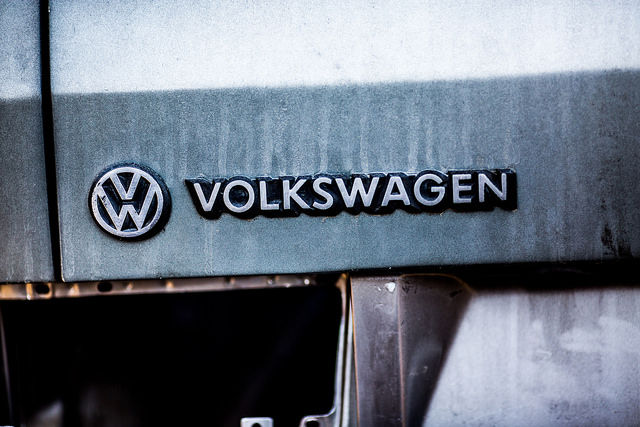
According to a report from The New York Times, slides from a 2006 presentation suggest that a "top technology executive" within Volkswagen Group detailed how the company could circumvent US auto emissions regulations by including illegal software on the German automaker’s diesel cars.
That illegal software showed up first in diesel Volkswagen and Audi models from 2009 and later and then in a handful of diesel Audi and Porsche SUV models. The US Environmental Protection Agency cited VW Group for its transgression in September, leading to a huge scandal for the automaker. Last week, VW Group said it would buy back nearly 500,000 affected 2.0L engine vehicles and set aside $18 billion to deal with the buyback, the legal costs, and regulatory fines.The Times said the 2006 presentation was discovered during the course of investigations into the company’s actions, and two anonymous sources confirmed to the paper that they had seen the slides in question. Volkswagen has maintained that its top management was unaware of the problem for years and then misunderstood the severity of the problem when it was brought to its attention in 2014.
The 2006 PowerPoint allegedly notes that engineers at VW Group’s research and development branch quickly found out that the emissions control system in its latest diesels would “wear out too quickly if it were calibrated to meet American pollution standards,” the Times reported. In Europe, auto emissions are not as stringently regulated.
The Times continued:
A technology expert at Volkswagen offered a solution in the PowerPoint presentation. Just a few pages long, the 2006 presentation included a graph that explained the process for testing the amount of pollution spewing from a car. In a laboratory, regulators would try to replicate a variety of conditions on the road.
The pattern of those tests, the presentation said, was entirely predictable. And a piece of code embedded in the software that controlled the engine could recognize that pattern, activating equipment to reduce emissions just for testing purposes.
As the years went by, VW Group allegedly altered the software to improve the cars’ ability to detect when a lab test was being conducted versus when the car was being driven on the open road. "During regulators’ tests, the engine software would turn up the pollution controls. When it was on the road, equipment designed to neutralize harmful nitrogen oxides would [be] turned down," the Times wrote.
The EPA requires that automakers wanting to sell new cars in the US must provide the agency with documentation on the components of the vehicle, as well as the results of self-administered emissions and mileage tests. Third-party and real-world testing was rare until recently, when research groups became able to buy or make equipment to do their own tests more easily. This relaxed attitude toward emissions testing is common throughout the world—and Volkswagen was even caught illegally manipulating its cars for the US market once before, in 1973. At the time, the company was fined $120,000 and did not have to admit wrongdoing. VW Group’s recent cheating was only noticed in 2014 due to research conducted by West Virginia University.
The Times reported that even after US regulators began inquiring about discrepancies between test results and real-world results, company executives brushed off suggestions on ways to bring VW Group vehicles into compliance with US standards, according to more anonymous sources. The company’s management group allegedly "rebuffed lower-ranking employees who submitted technical proposals for upgrading the emissions controls, according to the two people who attended meetings where the proposals were discussed,” the Times wrote.
"More effective emissions equipment would have made Volkswagen vehicles hundreds of dollars more expensive, without providing a benefit that customers could perceive,” the paper continued. "In the United States, even a modestly higher sticker price would have made it more difficult for Volkswagen to compete with rivals like Toyota and Honda.”
According to a memo the Times has viewed, a US law firm hired by VW Group estimated that the company would be on the hook for a fine in the range of $100 million, according to historical data on previous auto manufacturer fines.
With that information, executives failed to take the matter as seriously as they should have. “[Former VW Group CEO Martin] Winterkorn and other top managers were used to deferential treatment by government officials in Germany, where it is one of the largest employers,” the Times wrote.
In another memo, VW Group’s executive liaison with US regulators said he had only been given half an hour between the time that the EPA said it would publicly announce VW Group’s violations and the time of the announcement. The executive claimed he believed the company would have four months to privately discuss the matter with regulators.
reader comments
105